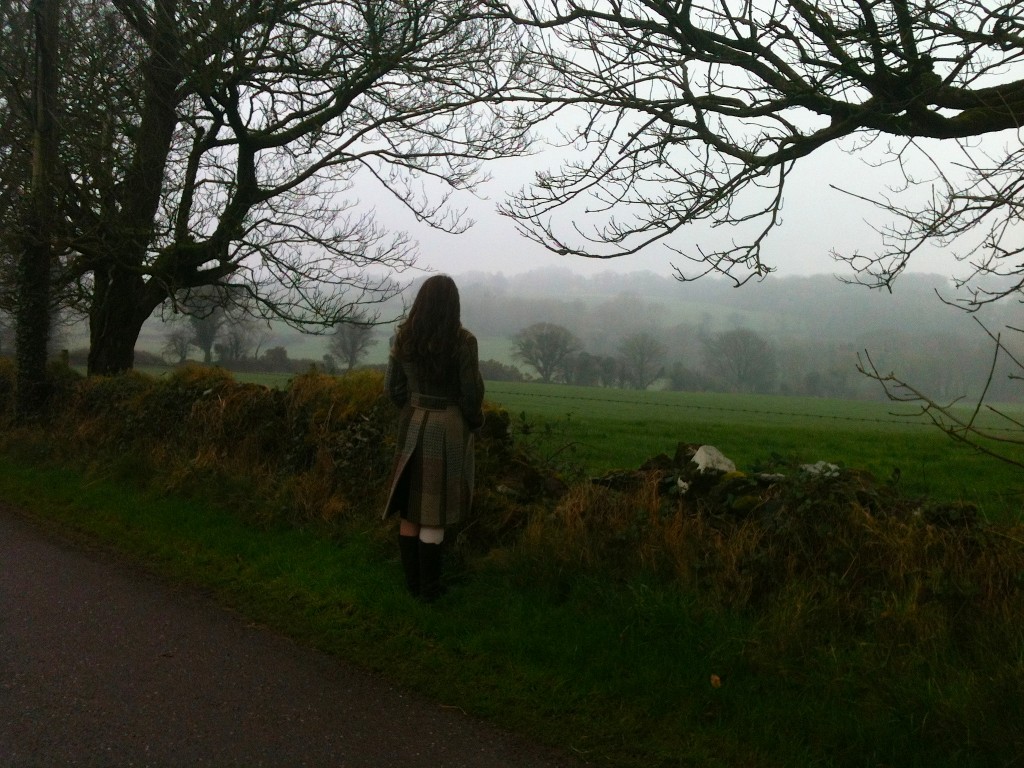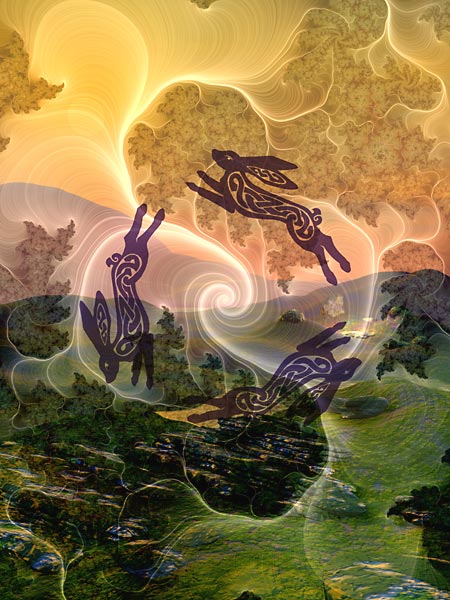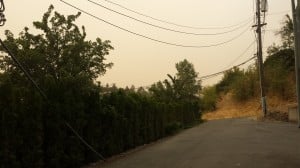Last week I realized I need more enchantment in my life. I am neck deep in the study of sociology and psychology; two subjects which, while deliciously interesting, are emotionally heavy and revealing. They strip away the veneer, and force you to look under the proverbial carpet–that place humanity ‘hides’ what it doesn’t want to deal with.
While considering my need for enchantment, I also contemplated: how I define it, what it means to me, and why it is integral when talking about Place and understanding our feeling of disconnection.

Here in Ireland, we’re still in winter’s grip. Snowdrops have bloomed and are fading; daffodils are beginning to peek out at the world; lambs have been born, though many ewes are still heavy with expectancy; and yet, we anticipate a mid-March snow this weekend. The Cailleach is not finished with us. And because it is still her time of reflection and darkness, though waning, I begin my exploration of Enchantment with its darker half.
Prior to the sixteenth century, when the scientific revolution began in the west, most of us human-persons perceived mind, experience, sentience, or consciousness in matter; we viewed the rivers, rocks, and sky as alive. We lived with an enchanted world view.
The world was wondrous, alive, and human-persons felt at home in this environment. The cosmos was a place of be-longing. A member of this cosmos was a direct participant in its drama. His personal destiny was bound up with ‘its’ destiny, and this relationship gave meaning to life. This was a participatory consciousness and it involved merger or identification with one’s surroundings. The world, which included all of us, was Enchanted.

When modern science came along, the fundamental question changed. Instead of asking “why” we began to ask “how.”
We wanted to dig into Nature’s treasure-chest and understand her deep workings.
[My discoveries] have satisfied me that it is possible to reach knowledge that will be of much utility in this life; and that instead of the speculative philosophy now taught in the schools we can find a practical one, by which, knowing the nature and behavior of fire, water, air, stars, the heavens, and all the other bodies which surround us, as well as we now understand the different skills of our workers, we can employ these entities for all the purposes for which they are suited, and so make ourselves masters and possessors of nature.
–René Descartes, Discourse on Method (1637)
To facilitate this understanding (with its resultant dissection and exploitation), we separated ourselves from the web, from the fabric of Fate. We stepped outside nature, and natural phenomena, to become observers of ‘it.’ And from the 16th century onward mind has been expunged from the phenomenal world. The scientific explanations now are matter and motion. There is a distinction made between observer and observed. We have disenchanted the world.
The end point of this way of thinking is total reification: everything is an object, alien, not-me; and I am ultimately an object too, an alienated “thing” in a world of other, equally meaningless “things.” This world is not of my own making; the cosmos care nothing for me, and I don’t really feel a sense of belonging to it. What I feel, in fact, is a sickness in the soul.
Social scientists have a word for this sickness: disenchantment. It is cultural rationalization; a systemic devaluation of mysticism characteristic of modern society. We now firmly and unequivocally place a higher value on scientific understanding than we do on experiential knowing. I am no longer my experience; instead, I am an outside observer of it. Magic has been pulled up, by the roots, from social life.
Disenchantment works on a macro-level, where it destroys the process of making sacred, i.e., telling sacred story, and mythologising. The chaotic social elements once sacralized to provide meaning (the old question of “why”) are now explained by mere knowledge (the “how”): a puny antidote against the monsters of the dark. Disenchantment then, is related to Durkheim’s concept of anomie: an un-mooring of the individual from the ties that bind in society.
It arises from a modern landscape that has become a “mass administration” full of alienation. Jobs are stupefying, relationships vapid and transient, the arena of politics absurd. Ernest Gellner, the philosopher and social anthropologist, argued that disenchantment was the inevitable product of modernity, and he observed that many people could not, and still can not, stand a disenchanted world.
What of those who can not stand a disenchanted world? Well, for many, there is a retreat into the oblivion provided by television, video games, fictionalism, virtual reality, entertainment, drugs, and consumerism. In a world where we no longer merge ecstatically with nature, we seek an artificial merger. We hunger for Enchantment, and so reach out blindly for mystery.

Ultimately, what we have created in our pursuit of “how” is a way of thinking about our world that rips us from it. We have created social pathology where none existed. Many of us engage the scientific method in our work, many defend scientific theory, many more love our modern technology (for both its medical benefit and convenience), and others are avid readers of science fiction, but the end point remains: scientific consciousness is alienated consciousness.
The fruit of our paradigm is evident in the environmental degradations of our time, the commodification of every available idea or place, and the feeling of loneliness hiding in the pit of our stomach.
Disenchantment is a complex topic, and many fine writers have explored it. I highly recommend Morris Berman’s work –especially his trilogy beginning with The Reechantment of the World — if you would like to dig deeper.
My desire for a return to Enchantment is not anachronistic, nor am I devaluing science. What I am doing is encouraging us to examine our relationship with the world around us, and how our larger social structures impact our spirituality.
And what of my own re-enchantment? I’ll write about that next week!











